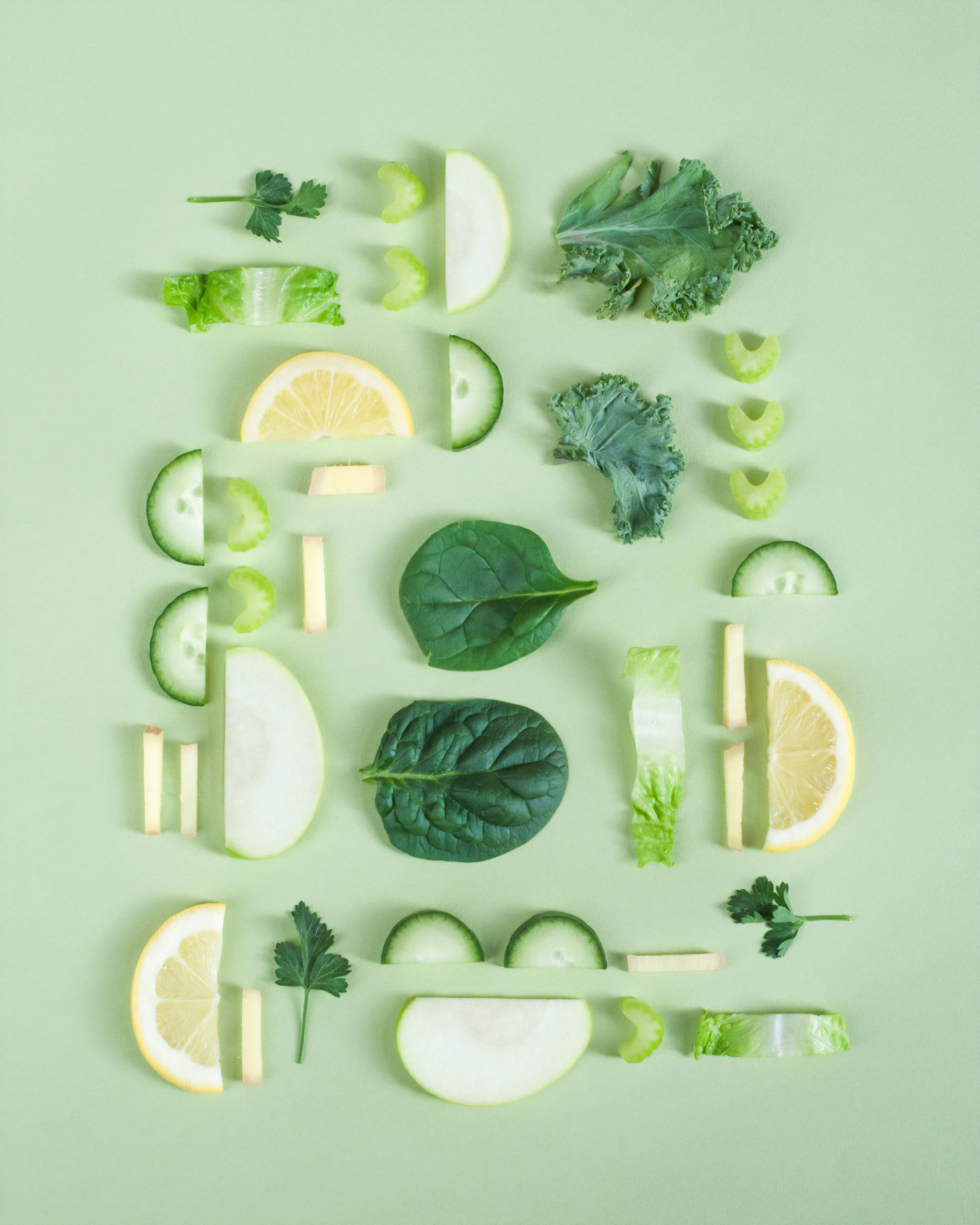
Vegan Food to Add to Your Vegan Diet
Following a Vegan diet means avoiding animal proteins and products, including dairy and honey. When following a Vegan diet, you can eat foods such as:
- High protein legumes including beans, lentils and peas
- Healthy fats from nuts, seeds and avocados
- Carbs from grains, breads, rice, and pasta
- Soy based products like tempeh and tofu
- Meat and cheese alternatives such as THIS Ins't products and Sheese
- Dairy alternatives such as soy milk, coconut milk, and almond milk
Why not check out our healthy vegan snack ideas to satisfy your cravings between meals? Find out more information on what you can eat on a

What is a Vegan Meal Plan?
Veganism has soared in popularity in recent years, as people make the switch towards a plant-based diet.
Green Chef has created a Vegan meal plan that works for everyone, whether you’re taking the first steps to a Vegan lifestyle or have enjoyed a plant-based diet for years.
Those just starting out will enjoy the structure their plan offers. Containing only vegetables and plant-based protein and carbs, they’ve taken away the confusion of knowing what vegan food you can eat.
Plus, with recipes inspired by global cuisines, they’ve put variety back on the menu - perfect if you’re looking for new vegan meals to try.
Planning meals for your Vegan diet in advance (or even meal prepping) can save you time and money, on your breakfasts, lunches, dinners and even Vegan snacks. By using a Vegan diet plan like Green Chef, you can streamline your menu planning, making sure you have all the necessary ingredients on hand. Did you know that Green Chef has plenty of extras like granola (perfect for Vegan breakfast) and Vegan lunch options like THIS Isn’t bacon and veggie bundles? This also makes it easier to choose nutrient rich and satisfying Vegan meals, instead of opting for unhealthy takeaways and convenience food.
Ready to start your journey into veganism with a vegan food delivery? You can view our vegan recipes and meal suggestions over on our menu page.
Get the Discount Directly on the App
Scan the QR code with your smartphone, or click on the button below to redeem your discount on the Green Chef app.
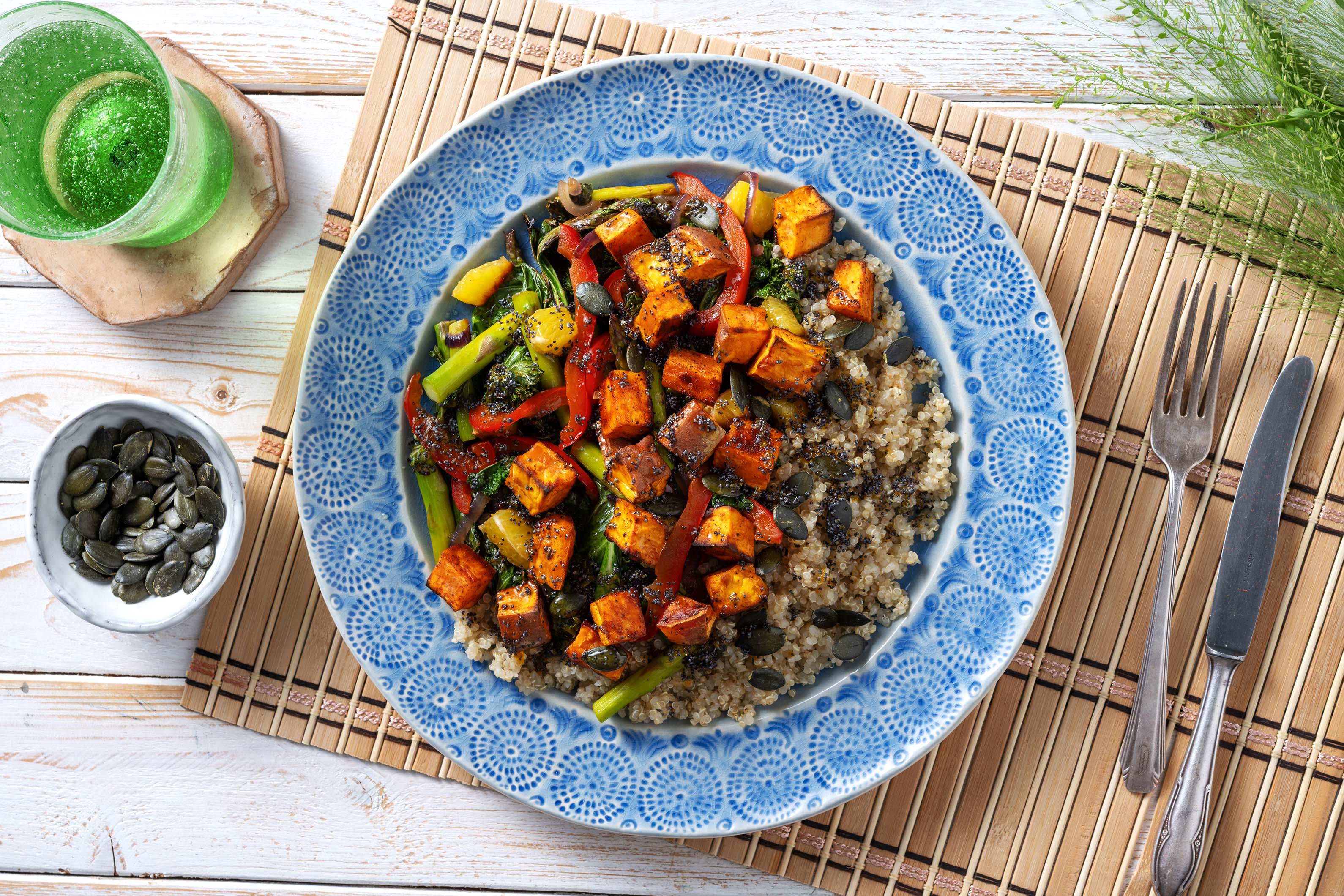
Why Switch To A Vegan Diet?
Many people worry that becoming a Vegan will restrict what they are eating, but we think changing diet is an opportunity to discover lots of exciting new foods within their Vegan diet. Giving Vegan recipes a go also opens up your weekly menu to new cuisines. There’s lots of cuisines which feature vegan recipes, like Burmese, South Indian, Ethiopian and even southern Italian cuisines. Green Chef Vegan recipes are inspired by global cuisines, from Thai to Mexican, Indian to Moroccan, you can travel the world through your taste buds each week, and meet your health goals at the same time.Surprise yourself and try something new, like this Indonesian Inspired Smoked Tofu with Nasi Goreng Rice.
Each recipe has a balanced nutritional profile too. To help you get the nourishment you need from your vegan diet, on average our recipes contain 20g or more of plant-powered protein and are packed full of iron, zinc, calcium, vitamin D and Omega 3.
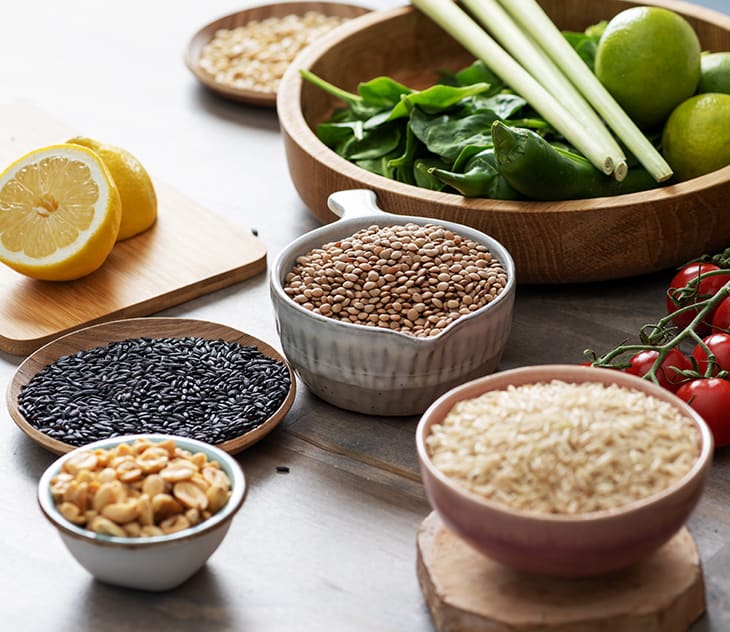
Is a Vegan Diet Healthy?
A Vegan diet is often seen as a healthy option because it contains more grains, fruits, vegetables, nuts and seeds than other diets.
It’s a common misconception that following a Vegan diet will leave you lacking in essential nutrients, notably iron, calcium and vitamin B12 and leave you requiring supplements. But with proper planning and clever substitutions, you can get everything you need from your diet.
Many people who are interested in the Vegan diet are concerned about getting enough protein to support their bodies and lifestyle. It is a common misconception that the Vegan diet doesn't have enough protein - there are many sources including beans, pulses, nuts and meat alternatives such as Vegan burgers, chicken or sausages. All Green Chef Vegan recipes are nutritionist-approved, so we make sure each one is not only packed with flavour, but also with the nutrients your body needs
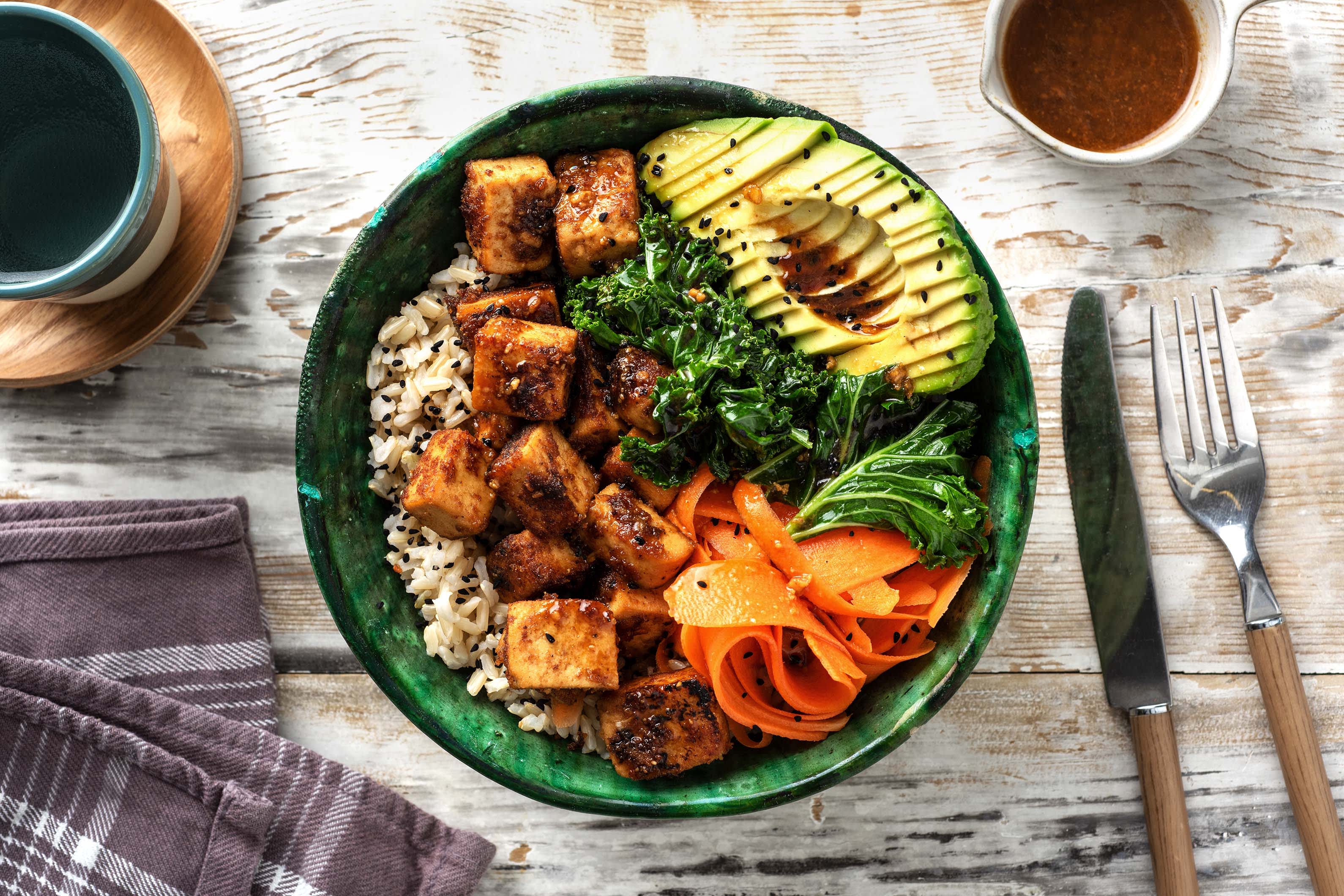
Starting a Vegan Diet
Many people worry that becoming a Vegan will restrict what they are eating, but we think changing diet, especially to plant-based meals, is an opportunity to discover lots of exciting new foods within their vegan diet. Giving vegan recipes a go also opens up your weekly menu to new cuisines. There’s lots of cuisines which feature vegan recipes, like Burmese, South Indian, Ethiopian and even southern Italian cuisines. Green Chef vegan recipes are inspired by global cuisines, from Thai to Mexican, Indian to Moroccan, you can travel the world through your taste buds each week, and meet your health goals at the same time.Surprise yourself and try something new, like this Indonesian Inspired Smoked Tofu with Nasi Goreng Rice. Or why not subscribe to a vegan meal delivery to have new and exciting vegan foods delivered to your door each week?
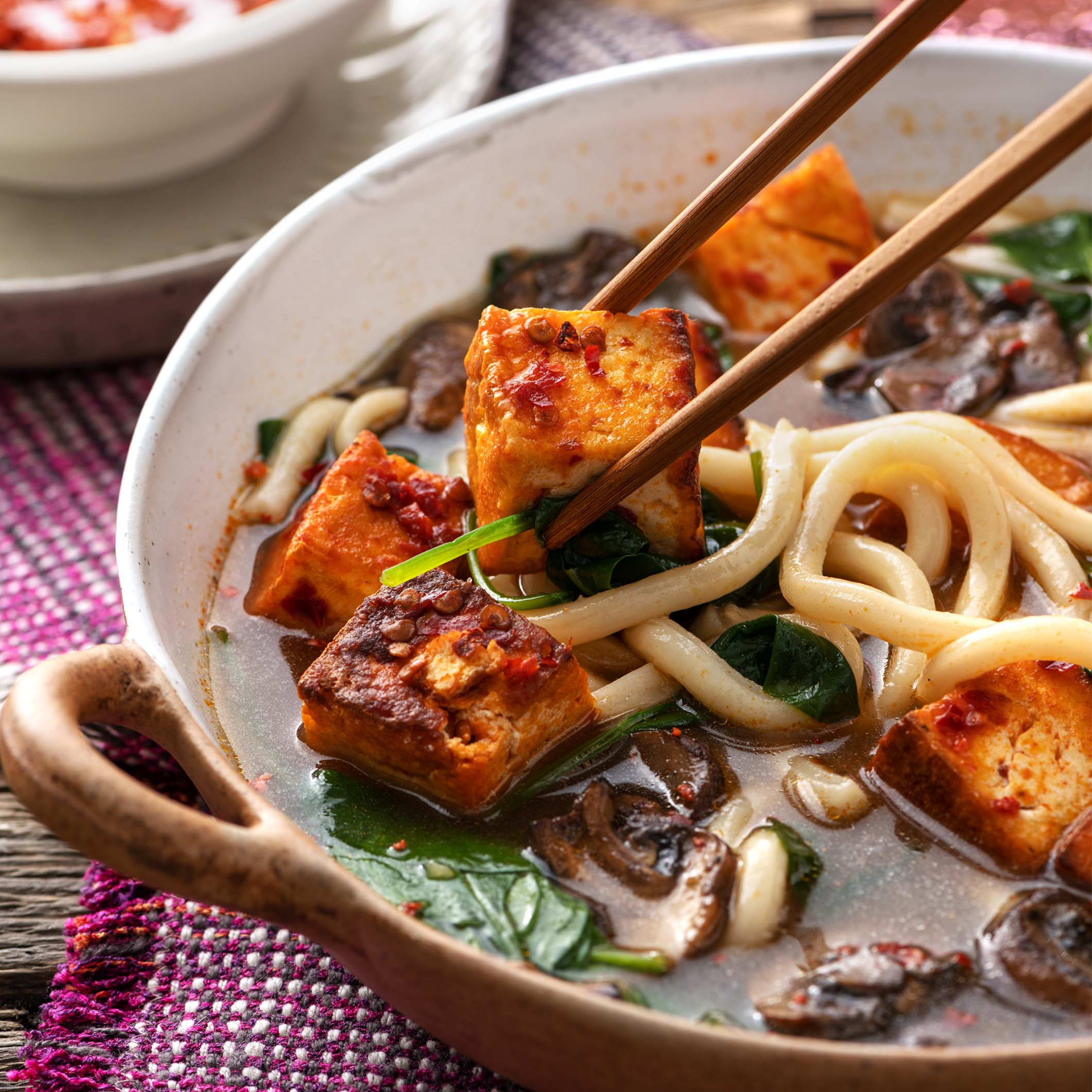
Why Choose Vegan or Plant Based Meal Delivery?
Green Chef’s vegan meal delivery takes the stress out of following a vegan and plant based diet. Each week, you’ll choose from a variety of chef-developed recipes, with all of the ingredients you need delivered to your door. No supermarket queues or searching for that must-have ingredient.They’ve taken the guesswork out of nutrition too. All recipes have a balanced nutritional profile to help you get the nutrients you need from your vegan food delivery in just a few clicks.
With a vegan food delivery from Green Chef, you can put variety back on the menu. Inspired by global cuisines, expert chefs fuse flavours to create a taste sensation you can’t wait to try. Mealtimes just got exciting again.
Learn More About How Plant-Based and VeganDiets and Green Chef Works
What is a Vegan diet?
How to start a Vegan diet
A phased approach is often considered best when starting a Vegan diet. Start by gradually introducing Vegan-friendly foods into your diet and increasing the amount of plant-based ingredients you cook with. Gradually increase this over time and phase out meat and animal-derived products.
It’s a good idea to research what you can and can’t eat as part of a vegan diet, as some products may contain animal-based ingredients. Don’t forget to check your drinks are suitable too!
Make sure your diet accommodates the nutrients you lose from the foods you will avoid. The good news is that with plant-based options and Vegan substitutions, you will be able to get all of the essential nutrients you need from your diet.
The Green Chef plant based meal delivery plan is great if you’re just starting your move to a vegan lifestyle, as it’s an easy way to enjoy delicious, balanced vegan meals.
What foods can I eat on a Vegan diet?
When following a Vegan diet, you can eat the following vegan foods:
- Fruits and vegetables.
- Legumes such as peas, beans, and lentils.
- Nuts and seeds.
- Breads, rice, and pasta.
- Dairy alternatives such as soy milk, coconut yoghurt, and nutritional yeast.
- Vegetable oils.
- Plant-based foods, such as tofu.
How healthy is a Vegan diet?
A Vegan diet is often seen as a healthy option because it contains more cereal, fruits, vegetables, nuts and seeds than other diets.
For your Vegan diet to be healthy, it’s important that it is balanced so you get the right nutrients you need. This means substituting any nutrients that you may lack as a result of avoiding certain types of foods.
If your Vegan diet isn’t balanced, it may not be considered healthy. For example, if your diet is high in carbohydrates and fat but low on other nutrients.
